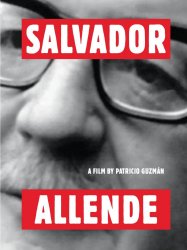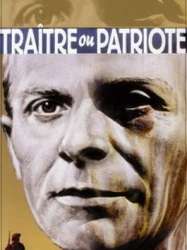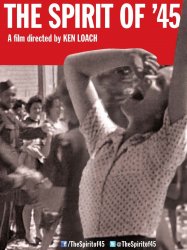The Revolution Will Not Be Televised is a film of genre Documentary released in USA on 7 march 2003
The Revolution Will Not Be Televised (2003)

If you like this film, let us know!
- Infos
- Casting
- Technical infos
- Photos
- Videos
- Film quotes
- Characters
- Music
- Awards
Released in USA 7 march 2003
Genres Documentary
Themes Politique, Documentary films about historical events, Documentary films about politics, Political films
Rating82%










The Revolution Will Not Be Televised (Spanish: La revolución no será transmitida), also known as Chávez: Inside the Coup, is a 2003 documentary focusing on events in Venezuela leading up to and during the April 2002 coup d'état attempt, which saw President Hugo Chávez removed from office for two days. With particular emphasis on the role played by Venezuela's private media, the film examines several key incidents: the protest march and subsequent violence that provided the impetus for Chávez's ousting; the opposition's formation of an interim government headed by business leader Pedro Carmona; and the Carmona administration's collapse, which paved the way for Chávez's return. The Revolution Will Not Be Televised was directed by Irish filmmakers Kim Bartley and Donnacha Ó Briain. Given direct access to Chávez, the filmmakers intended to make a fly-on-the-wall biography of the president. They spent seven months filming in Venezuela, following Chávez and his staff and interviewing ordinary citizens. As the coup unfolded on 11 April, Bartley and Ó Briain filmed on the streets of the capital, Caracas, capturing footage of protesters and the erupting violence. Later, they filmed many of the political upheavals inside Miraflores, the presidential palace.
Bartley and Ó Briain conceived of the film after Bartley returned from documenting the aftermath of the 1999 Vargas mudslides for an Irish charity. Following a visit to Venezuela to determine the feasibility of a film project, the pair formed a production company and applied to Ireland's film board, Bord Scannán na hÉireann (BSÉ), for a development grant. At BSÉ's request, the filmmakers partnered with a more experienced producer and shot a short pilot to show to potential investors. Funding for the €200,000 production was provided by BSÉ and several European broadcasters. Bartley and Ó Briain shot more than 200 hours of material; editing focused on identifying footage that would make the film entertaining and drive the plot. It was at this stage that the film's coverage narrowed to concentrate more on the coup attempt.
The film was positively received by mainstream film critics and won several awards. Reviewers cited the filmmakers' unprecedented proximity to key events and praised the film for its "riveting narrative"; criticism focused on its lack of context and pro-Chávez bias. First shown on television in Europe and Venezuela in 2003, The Revolution Will Not Be Televised later appeared at film festivals and secured a limited theatrical release on the art house circuit. Independent activists held unofficial screenings, and Venezuelan government officials encouraged its circulation to build support for Chávez's administration. The film is regularly shown on Venezuelan television, and in the capital it is often broadcast during "contentious political conjunctures". The Revolution Will Not Be Televised paints Chávez in a favorable light, which has led to disputes over its neutrality and accuracy; particular attention is paid to its framing of the violence of 11–13 April, the filmmakers' editing of the timeline, and the alleged omission of incidents and personnel. The film is variously cited as an accurate portrayal or a misrepresentation of the events of April 2002.
Synopsis
The Revolution Will Not Be Televised opens in 2001 with footage of Chávez as he tours the country. Met with "popular enthusiasm", he speaks at rallies, decrying neoliberalism and the international community's attacks on his character. The film outlines Chávez's rise to power, before covering his day-to-day routine and appearances on his television show, Aló Presidente, which includes a phone-in for citizens to speak with the president. Chávez outlines his aspiration to be seen as a modern-day Bolívar. Clips from Venezuelan and United States news reports demonstrate a "relentless campaign" against the president.Comments
Leave comment :
Suggestions of similar film to The Revolution Will Not Be Televised
There are 8965 with the same cinematographic genres, 8254 films with the same themes (including 22 films with the same 4 themes than The Revolution Will Not Be Televised), to have finally 70 suggestions of similar films.If you liked The Revolution Will Not Be Televised, you will probably like those similar films :

Hearts and Minds (2006)
, 1h52Directed by Peter Davis
Origin USA
Genres War, Documentary
Themes Politique, Documentary films about war, Documentary films about historical events, Documentary films about politics, Political films
Actors Bob Hope
Rating81%





Un documentaire soulignant, à travers des images d'archives et des témoignages, les enjeux et les attitudes contradictoires des témoins de la guerre du Viêtnam. Le titre vient directement d'un discours du président Lyndon Johnson qui déclara, en tentant de justifier l'envoi de soldats au Viêtnam, que l'ultime victoire ne se gagnerait qu'avec le cœur et l'esprit des hommes qui vivent là-bas.
 , 52minutes
, 52minutesOrigin France
Genres Documentary
Themes Films set in Africa, Politique, Documentary films about historical events, Documentaire sur une personnalité, Documentary films about politics, Political films
Rating74%





Ce documentaire retrace les quatre années de pouvoir de Thomas Sankara, président du Burkina Faso de 1983 à 1987. Chef d’État surprenant, il est surnommé « le Che africain » et connu de tous en Afrique pour ses idées novatrices, son franc-parler teinté d’humour ravageur, sa fougue et son altruisme. Avec une arme dans une main et les œuvres de Karl Marx dans l’autre, Sankara devint président à l’âge de 34 ans. Il bouscula immédiatement les fondations du pays au nom colonial français, Haute-Volta, qu’il renomma Burkina Faso, « Terre des hommes intègres ». Ce film rend compte de l’impact de cet homme et de sa politique sur les Burkinabés et sur l’Afrique en général.

Les jours heureux (2013)
, 1h37Directed by Gilles Perret
Origin France
Genres Documentary
Themes Politique, Documentary films about war, Documentary films about historical events, Documentary films about politics, Political films, Documentary films about World War II
Rating64%





La rédaction du programme du Conseil national de la Résistance intitulé : Les jours heureux.

Salvador Allende (2004)
, 1h40Directed by Patricio Guzmán
Origin Chili
Genres Biography, Documentary
Themes Politique, Documentary films about historical events, Documentaire sur une personnalité, Documentary films about politics, Political films, Films about Latin American military dictatorships
Actors Patricio Guzmán
Rating75%





This film shows how Allende managed to be elected in Chile and brings hope to a part of the population by enforcing socialist measures. It also explores Richard Nixon's policies and his orders to the CIA (Project Fubelt) concerning Allende during his election campaign.

Traitor or Patriot (2000)
Directed by Jacques Godbout
Origin Canada
Genres Documentary
Themes Politique, Documentary films about historical events, Documentaire sur une personnalité, Documentary films about politics, Political films, Documentary films about Quebec politics
Actors Jacques Godbout
Rating67%





It analyzes the place of Quebec Premier Adélard Godbout in history. Godbout is not well-considered by Quebec historians and citizens. Adérald Godbout was the Second World War–era Quebec head of government, and the great-uncle of the director. Godbout advances some theories to explain why his great-uncle was forgotten in the collective memory of the Quebecers. One theory is that Adélard Godbout was more favourable than other political leaders to conscription. Quebec nationalists, at the time, opposed conscription, which they saw as a British imperialist manoeuvre of English Canada to defend the Empire.

Persona Non Grata (2003)
, 1h7Directed by Oliver Stone
Origin USA
Genres Documentary
Themes Films set in Africa, Politique, Films about religion, Documentary films about law, Documentary films about war, Documentary films about historical events, Documentaire sur une personnalité, Documentary films about politics, Documentary films about religion, Political films, Films about Jews and Judaism
Actors Oliver Stone
Rating63%





Film documentaire de 2003 produit par Oliver Stone pour la série HBO America Undercover sur le conflit en Palestine occupée. Il s' entretiens avec Ehud Barak et Benjamin Netanyahu, anciens Premiers ministres d'Israël, Yasser Arafat, défunt président de l'Autorité nationale palestinienne, et divers militants palestiniens qui résistent à l'oppression du régime sioniste.

Draquila: Italy Trembles (2010)
, 1h33Directed by Sabina Guzzanti
Genres Documentary
Themes Politique, Documentary films about historical events, Documentary films about politics, Political films, Disaster films
Actors Sabina Guzzanti
Rating74%





Beginning from the earthquake in L'Aquila in 2009, the film investigates the way the "Protezione Civile" reacted to the catastrophe. It is shown as an extension of the government, not respecting the law, and putting political service above its responsibilities of the crisis. Sabina Guzzanti caricatures Prime Minister Silvio Berlusconi and is critical of the government, especially Berlusconi and Guido Bertolaso, the chief of the Protezione Civile. She presents the Italian opposition as invisible and ineffective.

Primary (1960)
, 1hDirected by Robert Drew
Origin USA
Genres Documentary
Themes Films about families, Politique, Documentary films about historical events, Documentaire sur une personnalité, Documentary films about politics, Political films
Actors Robert Drew, Joseph McBride
Rating70%





Primairy est un film documentaire sur les élections primaires du parti démocrate, entre John F. Kennedy et Hubert Humphrey, pour les élections de 1960 à la présidence des États-Unis.
 , 1h25
, 1h25Directed by Marshall Curry
Origin USA
Genres Documentary, Historical, Crime
Themes Environmental films, Politique, Documentary films about environmental issues, Documentary films about historical events, Documentary films about politics, Political films, Documentary films about nature
Rating70%





L'histoire de Daniel McGowan, un membre du groupe éco-terroriste Earth Liberation Front...

The Spirit of '45 (2013)
, 1h34Directed by Ken Loach
Origin United-kingdom
Genres Drama, Documentary, Historical
Themes Politique, Documentary films about historical events, Documentary films about politics, Political films
Actors Kate Hardie
Rating70%





Le documentaire évoque d'abord l'unité pendant les épreuves de la Seconde Guerre mondiale, et montre que le peuple anglais ne voulait pas en revenir à la douloureuse période de l'entre-deux guerres, très difficile pour les travailleurs. Il s'attache ensuite à montrer le moment clé de la victoire travailliste, et l'espoir qu'elle a constituée. Le grand renversement a lieu avec l'apparition à l'écran de Margaret Thatcher, suivi d'une période présentée comme noire pour les travailleurs.
 Connection
Connection